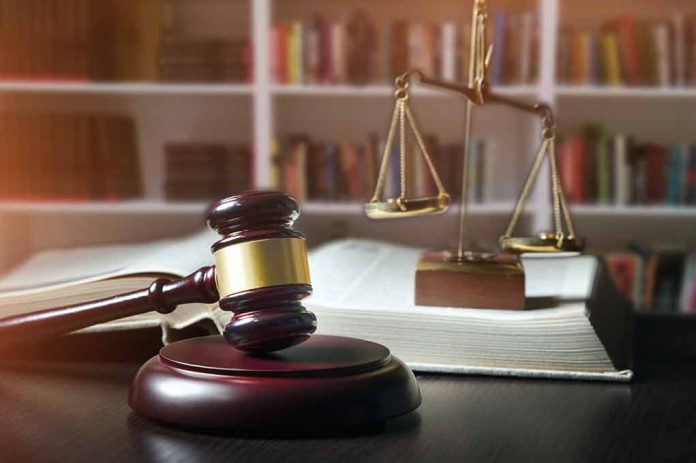
Hunter Biden’s capacity to potentially resume legal practice after a felony conviction raises significant ethical questions about equal justice under the law.
At a Glance
- Hunter Biden received a presidential pardon from his father, President Joe Biden.
- This pardon allows for the possibility of continuing legal practice, despite felony convictions.
- The pardon and its implications fuel debates on justice equality and ethics.
- These developments feed into broader discussions of reform and trust in legal institutions.
Presidential Pardon Sparks Controversy
On December 1, 2024, President Joe Biden signed a pardon for his son, Hunter Biden. This action has reignited discussions about ethics and public trust in the justice system. President Biden has claimed he has not interfered with the Justice Department’s decisions since his inauguration, despite the pardon he granted. Critics have questioned the scope and fairness of this pardon, which many deem too broad and indicative of favoritism.
The charges against Hunter Biden were instigated by political opponents in Congress, following an investigation that began in 2018. Initial public awareness emerged in 2020, with formal charges filed in 2023. Allegations involved lying about drug use when purchasing a gun and tax evasion, culminating in guilty verdicts in 2024. The plea deal pursued by the Department of Justice fell apart amidst political pressures.
Hunter Biden’s Legal Prospects
Despite his federal pardon, Hunter Biden faces a complex path before resuming legal practice. His law licenses are currently temporarily suspended in Washington, D.C., and administratively suspended in Connecticut. Meanwhile, the D.C. Court of Appeals has commenced a disciplinary investigation into his conduct.
The Center for American Rights has filed a complaint advocating for disciplinary measures, underscoring that no individual should be exempt from the law, including the president’s son. This complaint further intensifies the debate on whether personal connections within elite families inadvertently alter the standards that govern legal accountability.
Setting aside the fact that President Biden repeatedly stated he would not pardon his son, what I find most troubling is the sweeping nature of this pardon. Not only is Hunter Biden receiving clemency for multiple felony offenses—for crimes of which he was convicted and pleaded…
— Sen. Lisa Murkowski (@lisamurkowski) December 2, 2024
Implications on Justice and Ethics
The persisting question revolves around whether Hunter Biden’s circumstances reflect a broader issue within the justice system, particularly against a backdrop where past administrations have also leveraged their powers for pardoning relatives. President Biden is the third leader to do so, following Bill Clinton and Donald Trump. This case accentuates vulnerabilities inherent in the legal framework and casts a spotlight on the ethical standards governing public trust in justice systems.
Conversations surrounding Hunter Biden’s legal troubles are probing deeper into the ethos of fairness, reform, and redemption. While Hunter’s future in legal practice remains indeterminate, the ongoing political and social discourse continues to test faith in the justice system’s impartiality.
Sources:
- The Pardon Is About More Than Hunter Biden
- Biden isn’t the first president to pardon a relative. Here’s how the power works
- Pardoned Convict Hunter Biden Could Still Practice Law, Complaint Alleges













